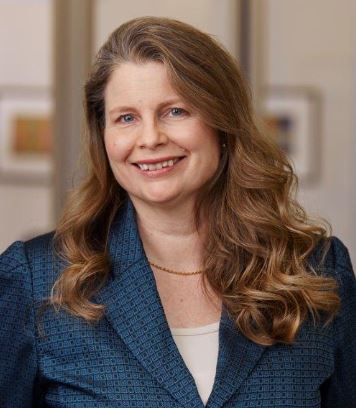
Attorney Suzy Israel has a heart for farmers and the fierce determination of an experienced public defender. As a litigator for Farm-to-Consumer Defense Fund (FTCLDF) for more than five years, Israel defended the rights of independent farmers against the government.
In 2021 she took a year off from the law to tackle another challenge, restoring an 1870s homestead and dairy farm that hadn’t changed hands since 1900.
“I’m happy to be back, and grateful for the year off,” said Israel.
Israel said her year-long sabbatical, spent repairing and restoring the 150-year-old homestead and developing a poultry and produce operation, has given her an even greater appreciation for farmers.
“The biggest lesson I learned is that farming is hard and I’m not very good at it,” she said with a laugh. “This last year has let me know my talents lie in the legal field and not in the field-field.”
While FTCLDF has attorneys who work on policy matters and legislation, some FTCLDF attorneys, like Israel, tackle courtroom litigation. If an FTCLDF member calls in, and there is potential for citations or criminal charges, Israel will likely be the one on the other end of the phone.
“I’ve been in the courtroom for 20 years and a public defender for 15 years,” said Israel. “There’s not a big difference between being a criminal defense attorney and the work I’m doing for Farm-to-Consumer. Either way I’m protecting people from the government.”
Israel says a regular criminal defendant often is treated better than a farmer, because prosecutors are typically more professional toward criminal defendants than local officials are toward farmers. Criminal defendants normally face a jury of their peers, but Israel says local officials will sometimes drop criminal charges against a farmer and instead pursue civil sanctions because no jury would ever convict a farmer on the charged offenses. In most civil cases the defendant has no right to a jury trial, and must pay for their own lawyer
“Another big difference between criminal defense law and ag law is that in criminal law you have precedent cases to draw from. In ag law there are almost no precedent cases, so it’s like every case is brand new. You don’t have 100 years of case law,” she said.
Israel says what drives her is the way local officials will drag things out, which can ruin a farmer and cost him or her their operation, even if they eventually win the case.
“You have to fight these crazy battles,” said Israel. “You have to fight the small stuff, or they will not stop.”
You have to fight these crazy battles, You have to fight the small stuff, or they will not stop. – Suzy Israel
More lawyers and more boots on the ground are needed to respond to these issues, said Israel. FTCLDF can only send Israel on courtroom “missions” for a few cases a year, and she wishes more cases could be fought in the courts.
Prevention Is the Best Cure
Israel advises all farmers, homesteaders, and cottage food producers to make friends with their neighbors, as many issues start when a disgruntled neighbor or community member makes a complaint to a local official.
“Take your neighbors some eggs, or honey, and get to know them. All local governments are overworked and understaffed, so they won’t come see you unless there is a complaint,” she said. “If there is a complaint, it’s the luck of the draw – everything is so dependent on the personality of the town and the personality of the inspector that happens to be investigating.”
She says it’s a good idea to become educated about the laws in your area. FTCLDF members can call the office number and get questions answered ahead of time about local food laws. Ideally, said Israel, it’s best to avoid trouble in the first place.
“By the time I come in, there is a chance of a person facing fines and litigation. You don’t want anyone to bring a complaint against you. Even if complaint is unfounded once you’re on the radar you’re stuck. Prevention is the best cure,” said Israel.
FTCLDF is always developing its network of “robust and engaged” local attorneys. If you or someone you know is an attorney who appreciates farmers and local food, regardless of your area of practice, FTCLDF would love to talk with you. Interested attorneys can reach FTCLDF through the web at Work with Us, by email at [email protected], or by phone at (703) 208-FARM (3276).